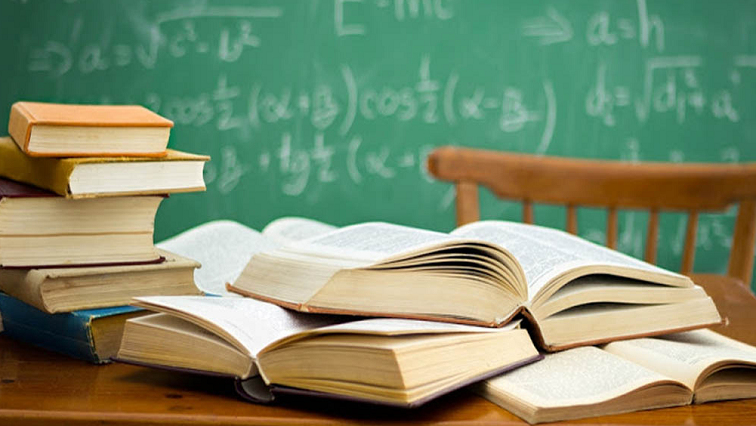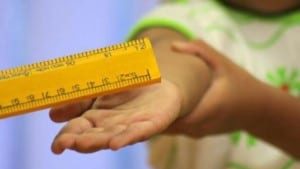The Department of Basic Education has defended the decision to reopen schools amid calls for classes to be halted as coronavirus cases approach a peak in the coming weeks.
The South Africa Democratic Teachers Union (Sadtu) earlier called on the government to close schools countrywide until after the COVID-19 pandemic peaked.
Education Minister Angie Motshekga’s Spokesperson Elijah Mhlanga says, “Why does the WHO (World Health Organisation) say we shouldn’t be isolating sectors by saying close this one and open this one? We need to have a broader look and say how do we reduce community infections and the way to do that is to have a comprehensive approach to it, which means all of us need to play our part in making sure we comply with the requirements for health and safety wherever we are.”
“We cannot isolate certain parts and say close this one and open this one, allow people to get into the taxi but don’t allow them to use that taxi to school. So let’s work together to flatten the curve and eventually stopping the spread of this,” adds Mhlanga.
The Health Minister has also thrown his weight behind the decision, saying it wasn’t an easy one and they had taken into account advice from scientists. Minister Zweli Mkhize reiterated the call for South Africans to get used to living with the virus, saying it will be with us for a while.
Teachers’ dilemma
At least 67 teachers in the Eastern and Western Cape have died of COVID-19 since the reopening of schools last month.
Another 300 of them have tested positive for COVID-19 across the country. It is for this reason that the South African Democratic Teachers Union (Sadtu) is calling for the closure of schools until the peak of the COVID-19 infections subsides.
The union held a National Executive Council meeting earlier on Tuesday and resolved that schools should close immediately to prevent further infections and loss of lives.
Last month, Grades 7 and 12 learners were the first groups to return to school and other grades are gradually being phased in. However, Sadtu wants these plans suspended until after the upcoming peak season to prevent further loss of lives of teachers.
“You have more than 600 that have been affected and almost about 300 have been infected, 20 in the Western Cape have already lost their lives, 67 in the Eastern Cape have already lost their lives. We will not be able to determine whether its community infection or school infection,” says General Secretary Mugwena Maluleke.
Maluleke has blamed the increase in infections on the country’s failure to follow the World Health Organisation guidelines on the re-opening of schools during the pandemic.
“The community infections have been continuing since the reopening of the schools and inevitably affecting the schools. This is going against the WHO’s advice that when you reopen the schools the pandemic must me under control. In our country when we re-opened the schools we did not follow the line that the WHO has been recommending that’s why we see the spike of infections.”
The union says there has been a lot of secrecy around disclosing one’s status thus increasing the risk of spreading the virus among teachers. Maluleke argues that there has not been any effective learning due to high absenteeism.
“West Rand, last week about 40 schools had less than 40 of the children in the classrooms. Out of the 88, 40 were closed. The Northern Cape has fewer schools and by yesterday you had again only 4 learners attending in one of the schools with 20 teachers. “
Sadtu says it has considered calling for the cancellation of the school calendar year, but decided against that saying the focus should be on matrics being able to finish this academic year. The union is set to meet and discuss these issues with Minister Motshekga.
“We would want this meeting as a matter of urgency. We are advising our members to stay at schools. By late this week, we should be able to advise them on the next cause of action. Of course, we are concerned about their fears, their anxiety, the trauma that they are subjected to on a daily basis but we call on them to bear with us just allow us to engage the minister as to what is the next cause of action,” says the union’s Deputy General Secretary Nkosana Dolopi.
In the meantime, the union suggests co-ordinated radio and television lessons by teachers to reach learners in rural areas as well as the use of mobile phones to access content and the curriculum, particularly for Grade 12s.
‘Reckless’
South Africa’s official opposition, the Democratic Alliance (DA) has rejected Sadtu’s call, branding it reckless.
The party says this is an attempt to disrupt the completion of the academic year and the academic progression of learners.
Meanwhile, there are over 16 000 teachers who have declared comorbidities nationwide and have applied to work from home. This was disclosed by Minister Motshekga in a written reply to a Parliamentary question by the DA.
In the video below, Sadtu explains why its taken such a stance:
Anxiety among teachers
According to research conducted by the North West University, anxiety levels among teachers in under-resourced schools is much higher compared to those in urban schools during the COVID-19 pandemic.
The researchers found under-resourced schools both in rural areas and townships. Director of research at the university’s Faculty of Education Professor Lesley Wood delivered the research findings in a webinar hosted by the University of KwaZulu-Natal.
“Teachers are the heart of the school and if teacher wellness is low then the whole schooling project is negatively affected. I think teacher well-being is a neglected component in the system. They have taken extra caution every time, it’s very stressful, adjusting to different teaching strategies as well as ensuring learners are safe but schools were not well before COVID.”
In KwaZulu-Natal, over 140 teachers have tested positive for COVID-19. The Umgungundlovu District is said to have the highest number of infected teachers.
Ndabenhle Mdluli, the principal of Enkomokazini Technical High School in Estcourt, says nothing has prepared him to be able to cope with the pressure that comes with the pandemic. Speaking in the webinar, Mdluli shared the challenges his school is facing during the pandemic. He says staff shortages, lack of resources and the late delivery of PPE’s should be the least of educators’ worries.
“For instance, many rural communities still don’t have access to a device and those who have it is not compatible to assist a learner to learn online. The emotional cost of being left out is unimaginable. For our school, remote learner was impossible. During the closure of the school, teachers with comorbidities and those who are 60-years and above have not been substituted.”
An educator at a primary school in Umlazi south of Durban, Nompumelelo Nzimande says: “In my school, we have a miss of learners, learners from advantaged and many from disadvantaged backgrounds so in that case it was hard. I had learners who were part of the remote learning and those who were not but because we had a supportive committee, those who were able to could share with those who are not. but we hard be creative in the way we do things to ensure that teaching and learning continues.”
Dr Rebecca Collies from the University of New South Wales in Australia says teachers also need to make time for self-care.
“It is very important that when we switch off from work we are not thinking about work. In Australia and I’m sure in South Africa they work more hours even after school time. Teachers are faced with a lot – from thinking about learners, to worrying about them, to teaching…. So it’s very important during this time that once they are done with work, they switch off.”
Psychologists who took part in the webinar have called on teachers to create a strong support network as the virus is expected to be around for a long time.






